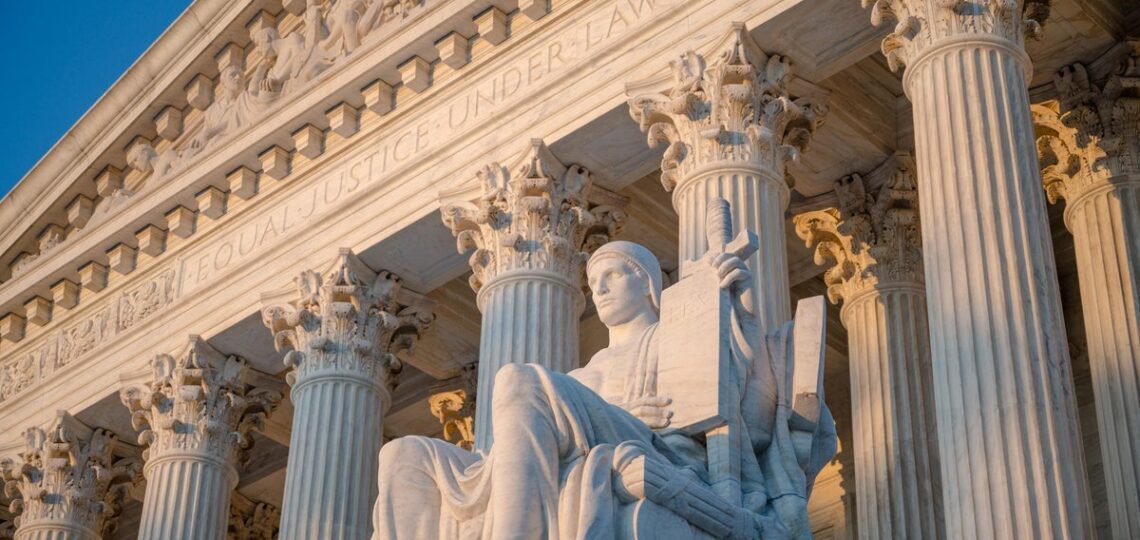
Trump administration asks Supreme Court to block restrictions on Southern California immigration stops
The Trump administration asked the Supreme Court on Thursday to pause a court order blocking immigration stops that a judge found to be indiscriminate in Southern California.
Lawyers for the Justice Department filed an emergency petition after a panel of judges at the U.S. Court of Appeals for the Ninth Circuit last Friday largely denied the administration’s request to suspend the lower court ruling.
That ruling, by District Judge Maame E. Frimpong, required federal immigration officials to have reasonable suspicion that someone is in the country illegally before detaining them. Frimpong found there was a “mountain of evidence” that federal immigration enforcement tactics were violating the Constitution.
In her order, Frimpong prohibited federal agents from basing arrests on people’s race or ethnicity, the fact that they speak Spanish or with an accent, their presence in a location or their occupation. Frimpong said any immigration arrests that relied exclusively on these factors violated the U.S. Constitution’s Fourth Amendment, which protects individuals from unreasonable searches and seizures.
The government said in its filing Thursday that Frimpong’s order is interfering with its immigration law enforcement in Southern California.
“Now, ICE agents, under threat of contempt, cannot detain anyone in the District solely based on those factors — not even after encountering someone who speaks only Spanish and works as a day laborer at a worksite that has been cited 30 times for hiring illegal aliens as day laborers,” government attorneys said in their filing.
They conceded, “Needless to say, no one thinks that speaking Spanish or working in construction always creates reasonable suspicion. Nor does anyone suggest those are the only factors federal agents ever consider.” But the government went on to argue, “[i]n many situations, such factors — alone or in combination — can heighten the likelihood that someone is unlawfully present in the United States.”
Melissa Quinn and
contributed to this report.